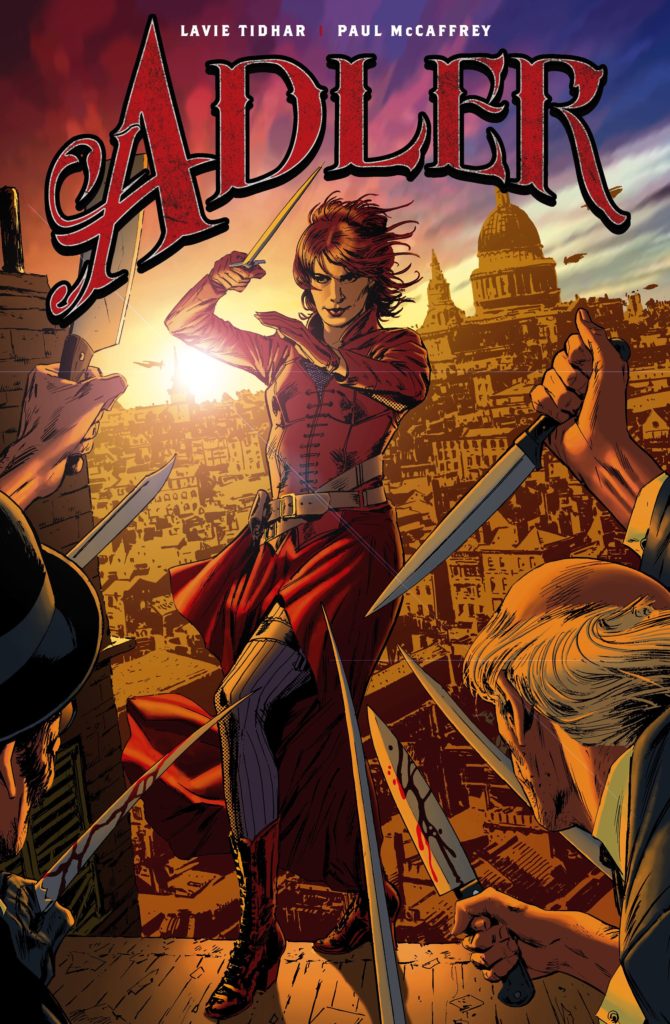
Irene Adler is on a mission to take down Sherlock’s greatest nemesis, Moriarty, in Adler #1, written by World Fantasy Award winner Lavie Tidhar, with art by Paul McCaffrey (TMNT, DC’s Men Of War).
In Titan Comics’ new title, Adler teams up with the League of Extraordinary Gentlewomen, a host of famous female faces from science, history and literature to defeat the greatest criminal mastermind of all time. The League summons iconic figures such as Jane Eyre, Lady Havisham, Marie Curie, Carmilla and Ayesha.
In stores February 5, 2020. Issue #1 comes with four covers to collect including a fantastic art cover by Butch Guice (Captain America).
Sample pages follow the jump.
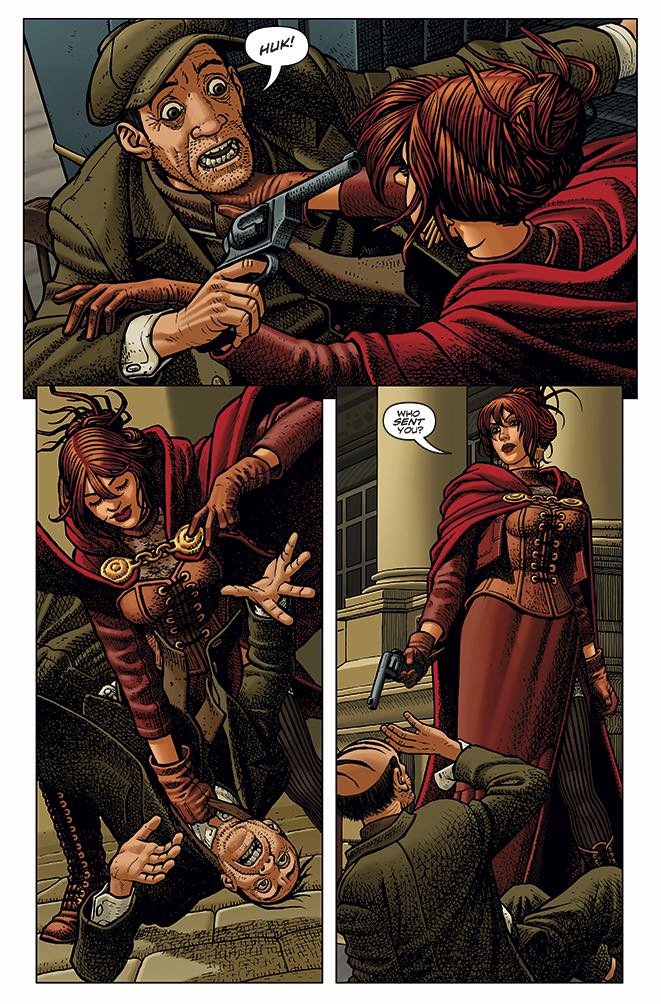
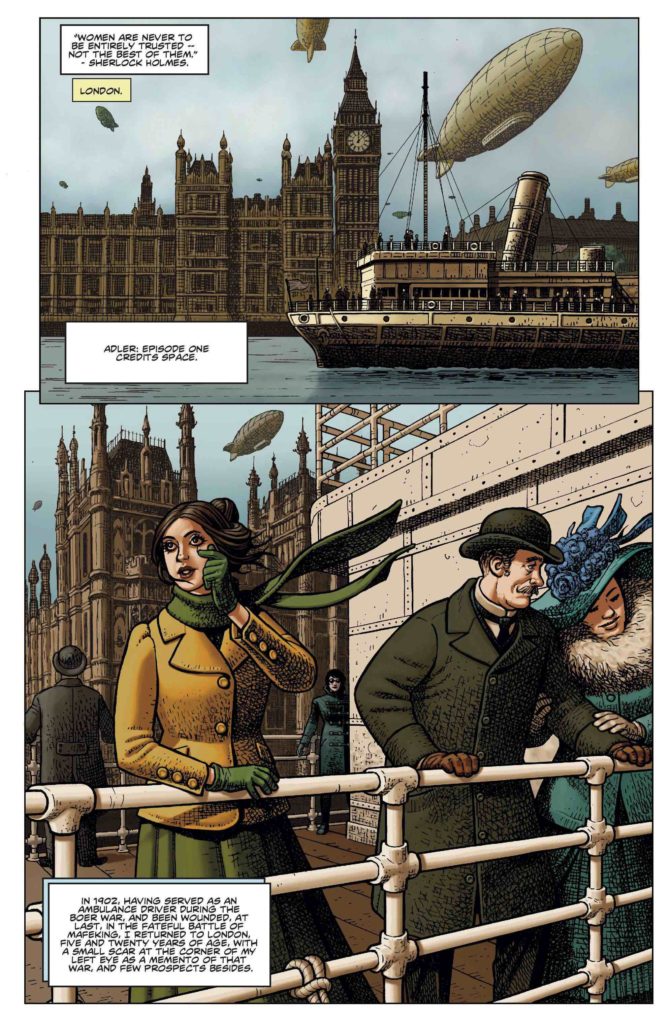
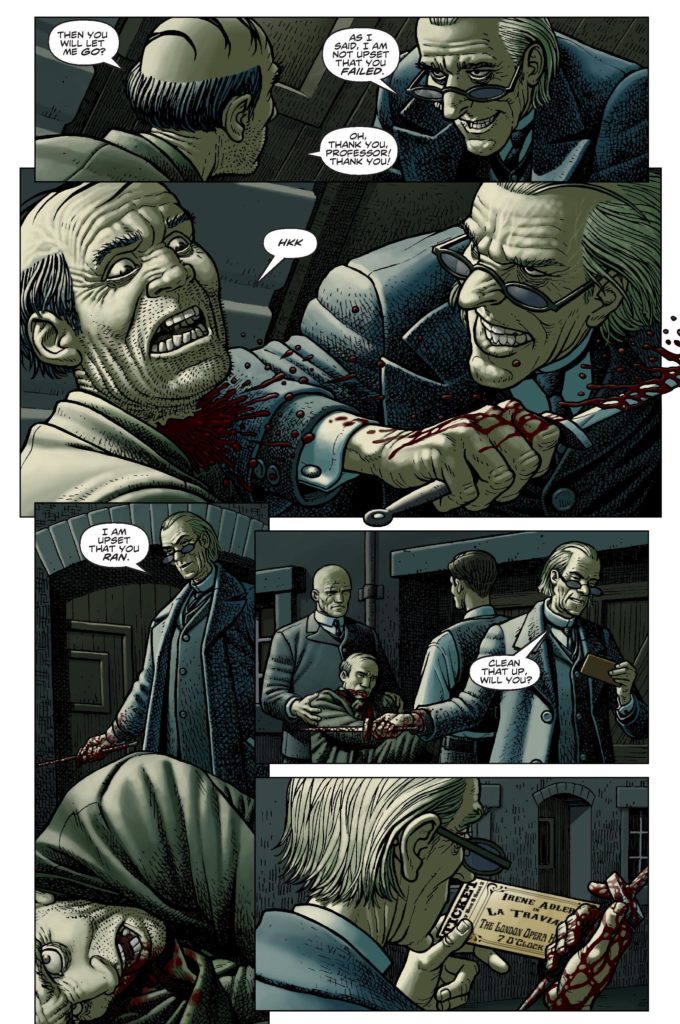
Discover more from File 770
Subscribe to get the latest posts to your email.

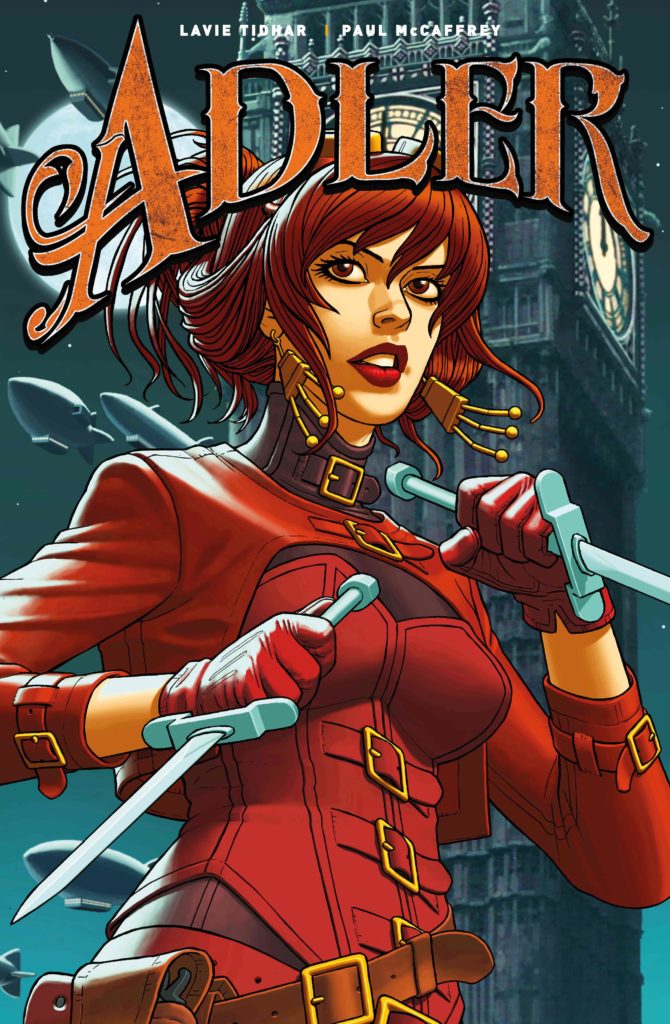
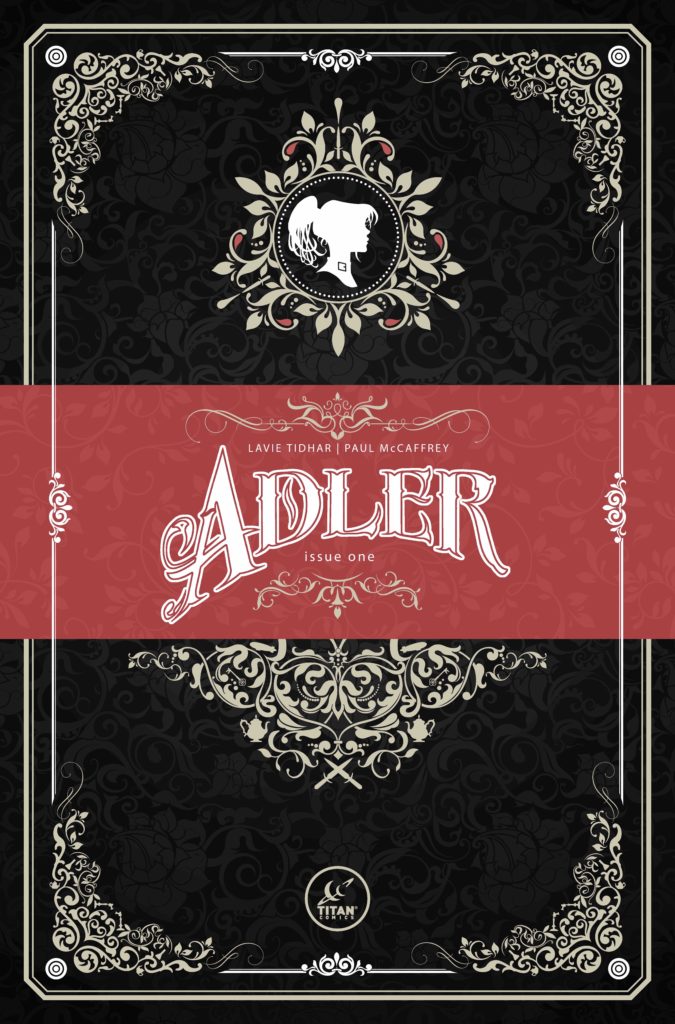
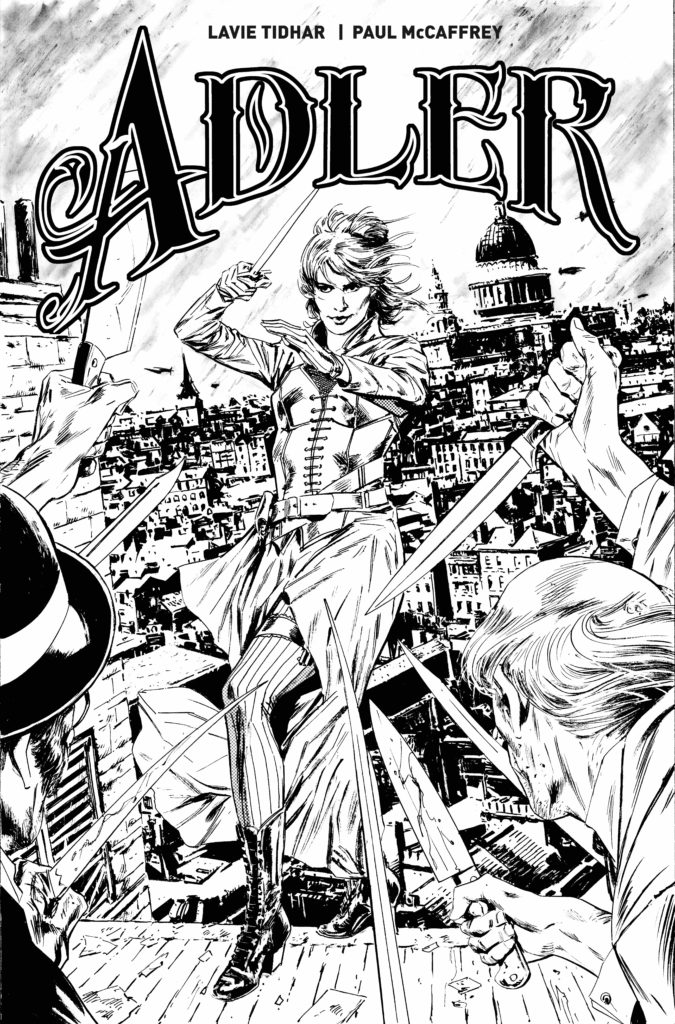
This could be fun. However, it seems to overlap a good deal with the Athena Club novels by Theodora Goss.
I recommend the “Angels of Music” anthology by Kim Newman. Three talented women investigators under the direction of a mysterious voice, except the women are figures of Victorian fiction and the voice is that of Eric the Phantom of the Opera. Irene Adler is one of the series of women in the stories.
@Steve Leavell: ISTM there is room for more than one set of heroines from literature — especially since Goss presents heroines who literature describes as monsters.
@Chip Hitchcock: No argument on your point–I was just noting that about half of the characters mentioned in the Adler promo also are in Goss’s books. (I wasn’t aware of the Newman stories and probably should check them out.)
I think there’s a lot of room around these different approaches without feeling like they’re banging into each other. “League of Extraordinary Gentlewomen” is clearly trying to hit as much as possible of the stream of possible literary references, while Goss seems to be adding a lot more new references.
For the former, you’re definitely depending on part of your audience having read all of the Conan Doyle stories about Holmes. For the latter, you’re depending on an audience that knows some of that backstory, but isn’t emotionally invested in the whole thing. I see this as a being dialogue over literature rather than disagreement.